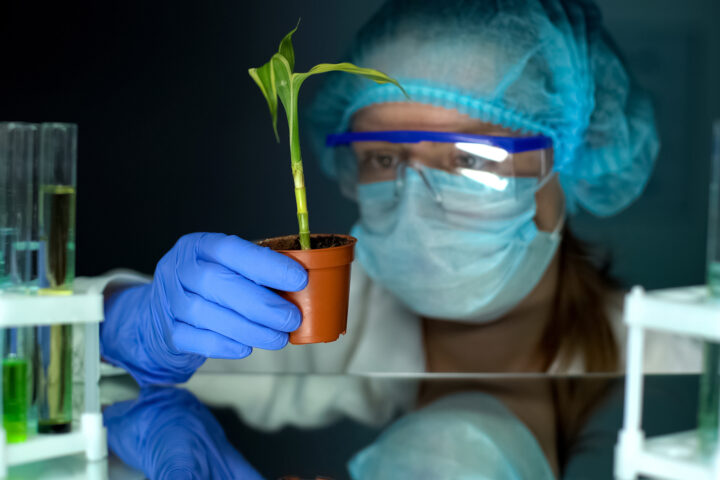
When panic collides with knowledge
Chemophobia is the scientific term. And it refers to a panicky fear of chemicals. In contrast, the natural world is seen as the source of all good things. From a scientific point of view, this simplified view is nonsense. Synthetic is not synonymous with toxic, as laypeople often think. The dose is decisive for the toxicity of both natural and synthetic substances.
Friday, January 24, 2020
The most important facts in brief:
- Chemophobia refers to a panicky fear of chemicals.
- Natural substances are automatically ascribed good properties, while anything synthesised is seen as harmful or unhealthy.
- The fear of chemistry can be reduced with scientific knowledge.
Natural is healthy. Chemicals make you ill. This is the simple denominator that has become stubbornly anchored in our social consciousness, reflected thousands of times by marketing and half-knowledge. This view completely disregards the dose, as ETH researcher Michael Siegrist says. «The idea that something can be contaminated and harmless at the same time goes completely against the grain for laypeople.» In the western world, a view has become established that nature poses no danger, that everything natural is healthy. This is due to the fact that nature has been pushed back further and further over the last 150 years. «150 years ago, people died from food because they had to eat spoilt food», says Siegrist.
Chemophobia is widespread
As Siegrist's research shows, people who understand chemical relationships better are less afraid of chemicals. In fact, laypeople often believe that whether a substance is of synthetic or natural origin is decisive for its toxicity. However, this is not the case. Synthetic is not a synonym for «toxic». The dose is decisive for the toxicity to humans of both natural and synthetic substances. Paracelsus already knew this: «The quantity makes the poison». If you know these connections, you are better armed against chemophobia. The best remedy against the panic fear of chemicals is knowledge.
Combating chemophobia
Chemophobia can be combated with chemical knowledge: the greater the dose of chemical knowledge, the smaller the panic fear of chemicals. In this respect, chemophobia is the reverse of toxicology. The larger the dose, the more toxic.
Sources
Kindly note:
We, a non-native editorial team value clear and faultless communication. At times we have to prioritize speed over perfection, utilizing tools, that are still learning.
We are deepL sorry for any observed stylistic or spelling errors.
Related articles

Synthetic corp protection products
All corp protection products that are produced by synthesis are also synthetic. Synthesis is the process by which a compound is produced from elements or a compounded new substance is produced from simply constructed compounds. Active substances that are produced synthetically can, however, be identical to nature in their effect.

Synthetic has many benefits
Synthetic pesticides are often automatically viewed as problematic compared with natural pesticides. But this is a misconception. It is not possible to make any general statements about toxicity based on the production method alone.

Lack of diversity becomes an existential problem
The dwindling genetic diversity in fields is becoming an increasing problem. Unfortunately, this problem is growing steadily, partly because politicians in Switzerland and the EU are viewing the issue through ideological lenses instead of listening to science.

Research into fungal diseases in Lyon
Fungal diseases are one of the greatest threats to global food production. They endanger crops, cause billions in damage every year and have always put farmers under pressure. A detailed report by RTS provides insights into Bayer's global research and development centre in Lyon, where new, environmentally compatible fungicides are being researched.

Science sounds the alarm: Federal Council draft slows down innovation
The new genomic breeding methods are regarded worldwide as a source of hope for climate-resilient agriculture – precise, efficient, and safe. While countries such as the US, Japan, and soon the EU are pushing for deregulation, the Federal Council's regulatory proposal remains tentative. Now researchers and industry are sounding the alarm: the proposed rules are so strict that they would effectively block innovation and application.

Approvals are becoming a brake on innovation worldwide – and agriculture is being left behind
New findings from the United States highlight what has long been a reality in Europe and Switzerland as well: the development and approval of new crop protection products has become such a complex, lengthy, and costly process that even innovative, sustainable solutions can hardly reach the market anymore.

